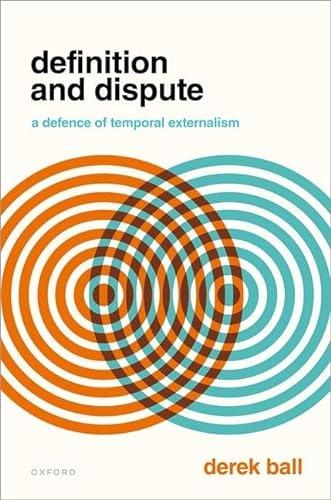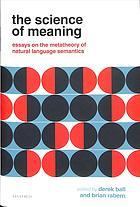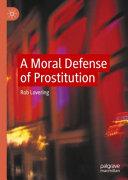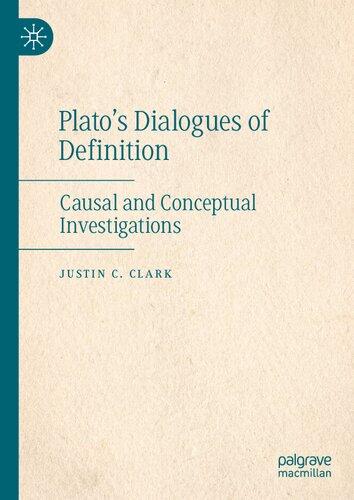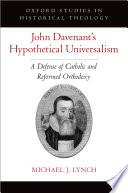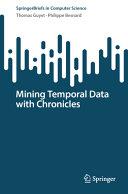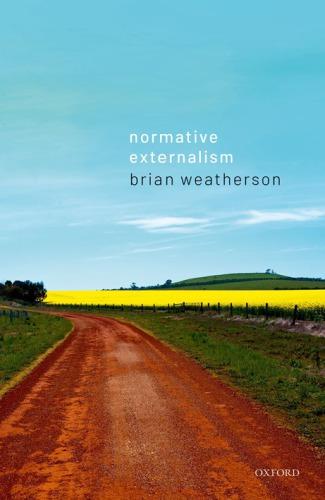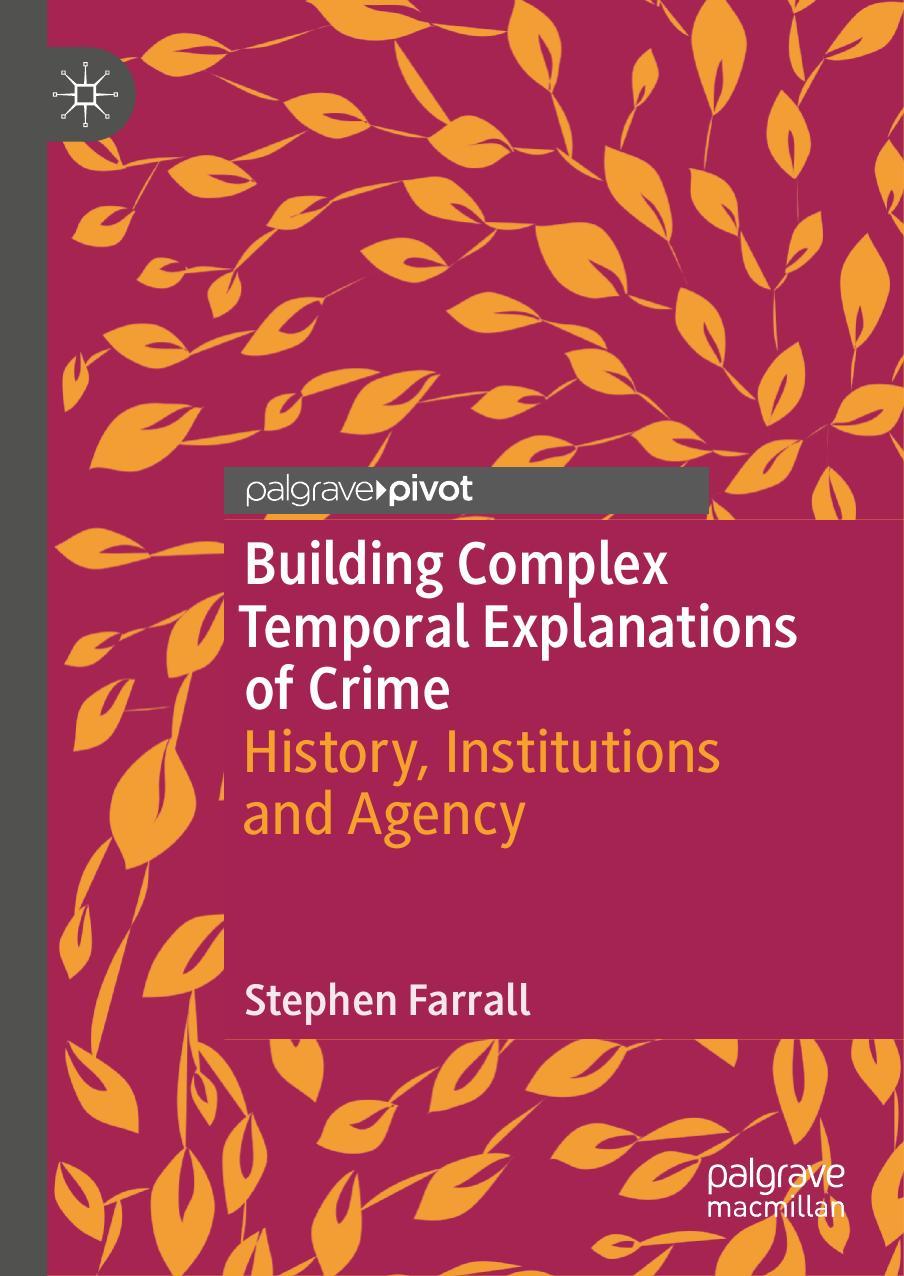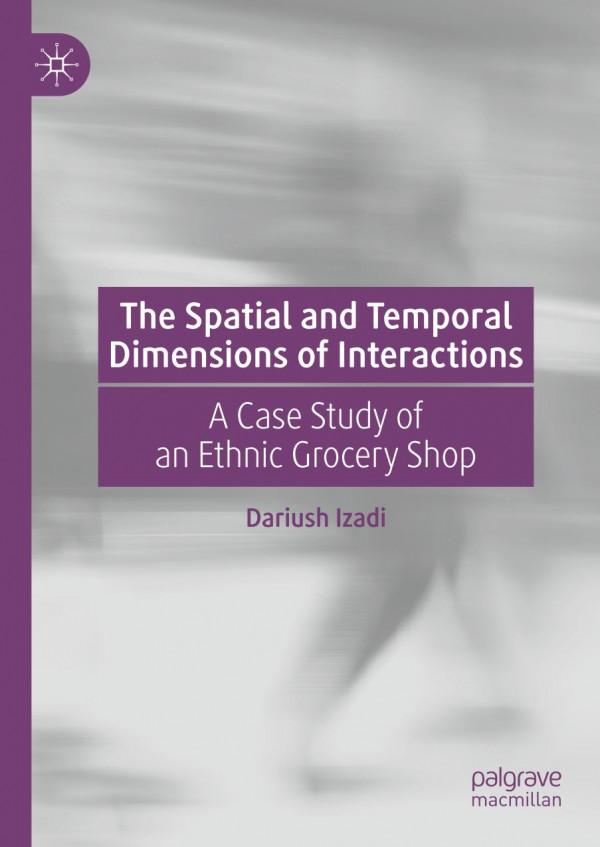1.MalcolmonKnowledge
Iwokeupearlythismorning,atebreakfast,andamnowsittinginfrontofa computer—orsoitseemstome,anyway.ShouldIbesosure?DoIreallyknow evensimpletruthsaboutmyenvironment,orabouttherecentpast?Thesceptic saysno:afterall,howcanweruleouttheclaimthatwearedreaming,orthatwe aremerebrainsinvatsfooledbyanevildemonorapowerfulsupercomputer?And ifwecannotruleouttheseclaimsthatareobviouslyincompatiblewithwhatwe ordinarilytakeourselvestoknow,howcanweclaimknowledge?
Andsoweareoffononeofphilosophy’soldestproblems:aproblemthat,in manytraditionaldiscussions,turnsinlargepartonthedefinitionof knowledge.
2 Because(Iwillcontend)similarcognitiveandlinguisticfactorsareatworkinabstractphilosophicaldisputes(forexample,aboutthenatureoftruth)andinlocaldisputesaboutmattersoftasteas areatworkinthedisputesthatshapeourlives,wediscussallofthese,sometimestogether.Inso doing,wedonotdiminishtheimportanceofthedisputesthatmatterdeeply;onthecontrary,itis importanttounderstandthesedisputesprecisely because theymatterdeeply.Nordoweexpressany moralapprobationoftheviewsexpressedinthevariousdisputes.Onemorallyoughtnottoholdcertain viewsabout(say)marriageorrace;itmayevenbethatone oughtnot toraisecertainquestionsabout theseissues.Thefactremainsthatbadviewsareheldanddefended,andweneedtoknowwhatisgoing onwhentheyare.
Canthisoldproblembeansweredbylookingathowweusetheword“know”? Thesuggestionmaybesurprising,butNormanMalcolm(1949)claimedthatit can.Malcolm’skeyobservationisthatweonlyusetheword“know”whenthereis genuinedoubtaboutanissue.Thisobservationisbasedonanexaminationofthe kindsofcircumstancesunderwhich“Iknow”seemslikeasensiblethingtosay:
Weareseatedintheaudienceatanopen-airtheatre,thestageofwhichis borderedbytrees.Thestagesceneryispaintedtorepresentawoodland,andthe paintingissoskilfullyexecutedthatweareindoubtastowhetherthatwhich weseeononesideofthestageisarealtreeorapaintedtree.Finallyoneofus exclaims“Iknowthatthatisarealtree,becausejustnowIsawtheleavesmove inthebreeze.”Thiswouldbeanaturaluseoflanguage.(1949,203)
Bywayofcontrast,supposethetreewereinplainview.Evenso,thescepticmay say:“Youdonotknowthatthatisarealtree.Afterall,youmightbedreaming!” Malcolm’sresponseisthattheclaimisinappropriate.Itwouldonlymakesenseto say“Youknowthatthatisarealtree”or“Youdonotknow”whenthereissomereal doubtaboutwhetheritisarealtree.Wemightfeigndoubtatthethoughtthatwe mightbedreaming,butourdoubtisnotgenuine;thereisnoseriousissueabout whetherthetreeisreal.(AsMalcolmsays,“Thesortofcircumstancesinwhich itwouldbeunnaturaltosayofamanthathe‘doubts’thatthereisafirearethe verycircumstancesinwhichthatmanmightexpressaphilosophicaldoubtasto whetherthereisafire!”(1949,205).)Therefore,Malcolmconcludes,thescepticis mistaken:sincethesceptic’sargumentsintroducenogenuinedoubt,herclaimis nottrue.Tosay“Idonotknow,becauseImightbedreaming”isalinguisticerror.
OnMalcolm’sview,itisnotjustthatthescepticisdefeated:thewholephilosophicalprojectofstudying,orevendiscussing,scepticismisonethatmakesno sense.Moore,whofamouslyofferedhisknowledgethathehadhandsasmore certainthanthepremisesofanyscepticalargumenttothecontrary,andDescartes, whofamouslyclaimedtoprovethatscepticismcouldnotbetruebecauseGod wouldnotdeceiveus,arenolessmistakenthanthesceptic.(Indeed,itisMoore (notthesceptic)whoisthemaintargetofMalcolm’sargumentinthearticlefrom whichtheabovepassagesarequoted.3)Malcolm’scontentionisnotthatwecan respondtothescepticbyclaimingthatweknow;itisthatthequestionofwhether weknowornotisamistake,becauseneithertheword“know”northephrase“do notknow”isnotcorrectlyappliedinthiskindofcase.
3 Malcolmchangedhismindonthispoint;inearlierwork,hehadheldthatMoorewascorrectly observingordinaryusage:“Byremindingusofhowweordinarilyusetheexpressions‘knowforcertain’ and‘highlyprobable,’Moore’sreplyconstitutesarefutationofthephilosophicalstatementthatwecan neverhavecertainknowledgeofmaterial-thingstatements”(1952,355).
2.FirstMainTheme:ConservatismaboutPractice
Malcolm’scontentionisaninstanceofakindofreactiontodefinitionaldisputes withwhichmanymayhavesomesympathy:thatthereissomethingwrongwith them.EventhosewhoarenotsympathetictoMalcom’sproposalmightsuggest atleastthattypicaldefinitionaldisputesaregoingawrybecausethepartiesto thedisputearefailingtounderstandeachother;theyaretalkingpasteachother; theresultingdisputeis‘justsemantic’or‘merelyverbal’.Weshouldnotbetrying tomakesenseofthedisputes,exceptperhapsbywayofdiagnosingwhythe partiestothemaremakingthemistakestheyare.Perhapsweshouldabandon thedisputesentirely:definitionaldisputesarehopelesslyconfusedandthereis justnothinginterestingtodiscuss.Orperhapsweneedtoreconsiderthekinds ofargumentswearemakinginordertocomeupwithbetterwaysofengaging indefinitionaldisputes.(Forexample,perhapsweshouldstoptryingtogive theoreticalargumentsforourproposeddefinitionsofknowledgeorofart,and shouldstoptryingtogivecounterexamplestoothers’definitions;instead,we shouldgivepragmaticargumentstotheeffectthatoneoranotherwayofusing awordwouldservecertainpurposesbetterthanothers.)Calltheviewthatwe needtoabandondefinitionaldisputes,orsubstantiallychangethewayweengage inthem, revisionismaboutpractice.
Ithinkthatweshouldviewrevisionismaboutpracticewithsuspicion.Definitionaldisputesarecommonandreallymatter.Itseemstomanyofus(myself included)thatwhatwearedoinginengaginginsuchdisputesisworthwhile.The conclusionthatwearesoconfusedaboutsomethingsocommonandimportant wouldbeaseriouscostofanyview.Weshouldthereforetrytodevelopatheory thatcanmakesenseofdefinitionaldisputesastheyarecarriedout.Thatis,we shouldlookforaviewthatsatisfiesConservatismaboutPractice:
ConservatismaboutPractice Thewaywetypicallyengageindefinitionaldisputesmakessense,andisnotconfusedorinneedofwholesalerevision;andthere is(intypicalcases)nobetterwayofengagingwiththeseissues.
MydefenceofConservatismaboutPracticecomesinthreeparts.First,the best-developedproposalsofwaysthatweoughttoreviseourpracticefail.In particular,asIargueinChapter3,proponentsof conceptualengineering—theidea thatweoughtto“assessandimproveourrepresentationaldevices”(Cappelen, 2018,148)—havenotdescribedapracticedistinctfromordinarytheorising.In particular,proponentsofconceptualengineeringhavenotdescribedanalternativemethodologyforengagingindefinitionaldisputes.Second,prominent motivationsforthinkingthatwhatwearedoingwhenweengageindefinitional disputesisfundamentallyconfusedareunsuccessful.Inparticular,asIarguein Chapter4,thepersistenceofdefinitionaldisputesisnotexplicableintermsof
someinconsistencyorincoherenceinourlanguageorconcepts.Third,thereisa plausiblewayofmaintainingConservatismaboutPractice.Defendingthisclaim istheworkofPartII,whereIdefend TemporalExternalism,thethirdmajortheme ofthisbook.Inordertointroducetemporalexternalism,andtoclarifythesecond majortheme—MeaningSameness—wewillneedsometechnicalterminology; introducingthisterminologyisthetaskofthenextsection.
3.SemanticsandPragmatics
Malcolm’sbasicstrategyistomovefromobservationsabouthowweusetheword “know”toaclaimaboutthemeaning of“know”,andthentotheclaimthatacertain philosophicalpositionordebateisamistake.Inparticular,hemovesfromclaims like(1)toclaimslike(2)and(3):
(1) Wewouldnotordinarilyusetheword“know”todescribeacaseaboutwhich thereisnorealdoubt.
(2) Themeaningoftheword“know”issuchthatapplying“know”tocasesabout whichthereisnorealdoubtisincorrect.
(3) Anassertionof“Iknow”or“Idonotknow”inacasewherethereisnoreal doubtisnottrue.
Themovefrom(1)to(2)and(3)shouldexcitesuspicion.Afterall,noonewould concludefromthefactthatwewouldnotusetheword“fart”infrontofthequeen thatthemeaningoftheword“fart”precludesitsapplicationinthepresenceof thequeen,orthatanassertionmadeusingthatwordinthepresenceofthequeen couldneverbetrue.SoMalcolm’smovecouldberesistedifwehadsomereasonto thinkthatthefactthatwedonotsay“Iknow”whenthereisnorealdoubtisdue tosomefactorotherthanthemeaningof“know”.
PaulGrice(1989a)gaveareasontoresistMalcolm’sattempttoreadour reticencetouse“know”aboutuncontroversialmattersintothemeaningofthe word.⁴Grice’sthoughtisthattalkingtoeachotherisacooperativeendeavour.In general,whenwespeakwearetryingtodosomethinguseful;thisusuallyentails notonlytellingthetruthandbeingclearandunambiguousbutalsogivingonly informationthatisrelevant.Thisexplainswhywedonotgoaroundsayingthings like“Iknowthatisarealtree”,exceptincaseswherethereisgenuinedoubt.Ifthere isnodoubt,wedonotsay“Iknow”,notbecausesayingsowouldbeincorrector untruebutbecauseitwouldbeirrelevant;inordinarycases(whereweareinthe
⁴ GricedoesnotprovideadetaileddiscussionofMalcolm’sviewofknowledge,thoughheindicates thatMalcolmisoneofhistargets(Grice,1989c,5).
vicinityofaplaintreeingoodlighting,withnoreasontosuspectshenanigans), youwilltakeitforgrantedthatthetreeisrealandthatIknowthatitis.Tellingyou thatIknowisoddbecauseitgivesyounousefulinformationandsocontributes nothingtotheconversation.
SothedisputebetweenMalcolmandGricegoessomethinglikethis.Malcolm claimsthatwayweuse“know”showsthatthemeaningofthewordismore complicatedthanmanyphilosophershavesupposed;anaccountofthemeaning of“know”mustalludenotonlytoevidence,justification,reliability,truth,and thelikebutalsototheexistenceofgenuinedoubt.ButGricerespondsthatthe complicationisunnecessary:thefactsaboutouruseof“know”canbeexplainedon theviewthatthemeaningof“know”issimple,givenanindependentlymotivated viewofhowlanguageisused.⁵
Tobeclearaboutexactlywhatisatissue,weneedtointroducesometechnical terminology.Utterancesofdeclarativesentences(madeinappropriatecircumstances,withappropriateintentions,andsoon)aretrueorfalse,andwhether anutteranceistrueorfalseisinpartamatterofwhatthatutterancemeans.If Isay,“Grassisgreen”,Iamspeakingtruly,andthisisbecausegrassisgreen;given what“Grassisgreen”means,myutteranceistrueifandonlyifgrassisgreen. Sothemeaningofadeclarativesentencemustbe,oratleastbesomethingthat determines,theconditionsunderwhichutterancesofthesentencearetrue.⁶(To dojusticetoviewslikeMalcolm’s,weshouldnotethatsometheorieswillwant todistinguishdifferentwaysoffailingtobetrue;forexample,beingfalse,and beingneithertruenorfalse(butentirelyinapplicableornonsensical).Butthis complicationwon’tberelevanttomostofthediscussiontofollow.)Iproposeto callatheorythatgivesasystematicdescriptionoftheconditionsunderwhich utterancesofdeclarativesentencesaretruea semantic theory.⁷Nodoubt,thereis
⁵ CharlesTravis(2008)advancesabolderreadingofMalcolm,onwhichhisclaimisnotjustthat wordslike“know”and“certain”requiredoubtbut(roughlyatleast)thatnosentencehastruthconditionalmeaningexceptwhenusedinrelationtoaparticularlineofinquiry,anditmustbe concededthatthisviewissuggestedbysomepassagesinMalcolm’slaterwork(e.g.,Malcolm,1970, 42–43).Onthisinterpretation,Malcolm’sobservationsabouttheuseof“know”canbeusedtodefend apositionwhichradicallyquestionsthedistinctionbetweensemanticsandpragmaticssketchedbelow. Fulltreatmentofthisstyleofviewwouldtakeusfarafieldfromtheprimaryissuestobediscussed,and Ithereforeproposetosetitaside.IrespondtothekindofviewTravisattributestoMalcolminBall (2018b);seealsothediscussionofmeaningvariationinChapter10,Section2.
⁶ Shouldasemantictheorydealwithutterances,asopposedtosentences-in-contextorsomething similar?Littleturnsonthisforourpurposesinthischapter;werevisitthechoiceswearemakinghere inChapter8.
⁷ Thereis,ofcourse,muchcontroversyaboutmeaningandsemantictheorising;theviewof semanticsjustsuggestedisagestureatonemainstreamperspectiveonthesecontroversies(itisacore elementoftheotherwisediverseviewsofDavidson(2001);Montague(1974a);Lewis(1983a);Larson andSegal(1995);HeimandKratzer(1998);Borg(2004);amongmanyothers).Anotherwayofusing theterminologywouldhaveitthatamuchwiderarrayofphenomenashouldcountassemanticoras mattersofmeaning.Forexample,onemightsaythatanythingconventionallyencodedinlanguage issemantics(wherethismightincludemattersofe.g.,conventionalimplicature,presupposition, informationstructure,andsoon,whicharguablygobeyondtruthconditions).Ihavenoobjection
moretomeaningthansemanticsinthesensedescribed.(Foronething,wehave saidnothingaboutthesemanticsofnon-declarativesentences.)Butwhenwego ontotalkaboutmeaninginlaterpartsofthisbook,itissemanticsinthissense thatwewillhaveinmind.
Withthisterminologyinplace,wecanpausetomaketwoofMalcolm’s assumptionsexplicit.
First,Malcolmisassumingthatallpartiestothedispute—himself,thesceptic, anti-scepticalphilosopherssuchasMoore—areusingtheword“know”withthe samemeaning,andnooneisadvocatingachangeofmeaning.Callthisclaim meaningsameness.TheassumptionofmeaningsamenessiscrucialtoMalcolm’s case:ifthescepticwereusing“knows”withadifferentmeaning,itmightwellbe thecasethatanutteranceof“Idon’tknowwhetherIhavehands”bythescepticis true,evenifahomophonicutterancebyMalcolmisuntrue.
Second,Malcolmisassumingthatsemanticsisconnectedtoourlinguistic behaviourinaverysimpleway.Atleastroughly,Malcolmassumesthatifa sentencehascertaintruthconditions,andthoseconditionsobviouslyobtain,then itwillbeappropriatetousethesentencetomakeanassertion;sothatifitisnot appropriatetousethesentenceundercertaincircumstances,wemayinferthatthe sentenceisnottrueunderthosecircumstances.
WhatGricepointsoutisthattherelationbetweentruthconditionsandconditionsunderwhichitisappropriatetouseasentenceismorecomplicatedthanthis. Asentencewillnotbeusedifthereisnopointinusingit—evenifitistrue.(And ofcourse,Gricefurthersuggeststhatasentencemaysensiblyandcooperatively beusedevenwhenusingitinvolvesspeakingfalsely,forone’shearersmaybeable toreasonfromthefactthatoneutteredthefalsehoodandthehypothesisthatone isbeingcooperativetosomeusefultruth.)SoGricepointsoutthattheconditions underwhichasentencecouldbeutteredtrulyneednotbetheconditionsunder whichthesentenceisactuallyused;evenifwearegivenasemantictheory,we havefurtherquestionstoansweraboutwhenandhowsentenceswiththegiven semanticsareused.Iproposetocallatheorythatpurportstoexplainhowandwhy sentenceswithgiventruthconditionsareuseda pragmatic theory.Apragmatic theory,inthissense,willtypicallymakeclaimsaboutwhypeoplesaythethings theydo—whytheiractionsarereasonableandwhattheyaimtoachieve.
TheneedforapragmatictheoryshowsthatMalcolm’ssimpleideaaboutthe relationbetweensemanticsandlinguisticbehaviouristoosimple.Moresubtle pragmatictheoriescanalsocallintoquestionmeaningsameness.Weturntothese theoriesinthenextsection.
tothiswayofusingtheterminology,butIadoptthetruth-conditionalnotioninordertosimplify discussion;itshouldbeunderstoodasastipulationtogetusstarted.
4.SecondMainTheme:MeaningSameness
Malcolmassumedthatallpartiestodiscussionsofknowledgeagreeaboutwhat theirwordsmean,anditisplausiblethatsomethinglikethisassumptionistrue inmanyordinarycasesofcommunication.IfItellyou,“TheCrimeanWarended in1864”,it’snaturaltothinkthatyouunderstandmejustincaseyouunderstand thatIamusing“TheCrimeanWar”totalkabouttheCrimeanWar,and“ended in1864”topredicateoftheCrimeanWarthatitendedin1864;ifyouthinkthatI amusing“TheCrimeanWar”totalkaboutsomethingelse,or“endedin1864”to predicatesomethingelse,youaremisunderstandingme.
Butpeoplespeakforavarietyofreasons.Wemightbefacedwithasituationin whichagoodpragmatictheorywillholdthataspeakeristryingtocommunicate somethingabouthowweoughttospeak—whatwemeanoroughttomean—or tobringaboutachangeinthewaythatwespeak.Andanumberoftheoristshave defendedthiskindofpragmatictheoryinthecaseofdefinitionaldisputes.
A.J.Ayerprovidesagoodexampleofthisstrategyinaction.Ayerclaimed thatatheorycanbetrueonlyifitisempiricallyverifiable,andthatphilosophical claims—includinghisownclaimthattruthrequiresempiricalverifiability—are typicallynotdecidableonempiricalgrounds(Ayer,1940,55).Thisposition appearsincoherent,sincebyhisownlightstheclaimthattruthrequiresempirical verifiabilityisnotempiricallyverifiable,andhencenottrue.Heconcludesthat philosophersarenotinthebusinessofmakingtrueclaims.What,then,arethey doing?Ayer’salternativeisthattheyaremakingproposalsforhowtouselanguage: “whatweherehavetoconsiderisnotanumberofalternativehypothesesconcerningthenatureoftheempiricalfacts,butanumberofalternativerecommendations concerningthewayinwhichwearetodescribethem”(Ayer,1940,55).
NowitiseasytoseeAyerasgraspingatstrawsinthefaceofaverydeep probleminhisposition,andperhapsthereisanelementoftruthinthisthought. ButAyerisappealingtoadeepermethodologicalprinciplethan“saveyourown skin”.Itisapieceofcommonsensethatweshouldtrytointerpretthewords andactionsofotherscharitably.Whetherandhowthispieceofcommonsense canbepreciselyformulatedisagoodquestion,butitsapplicationinparticular casesseemsclearenough.Ayer’sstrategyisessentiallytoapplycharitytohimself;⁸ whenhisviewseemstopredictthatheisspeakingnonsense,hesuggeststhathe oughttobeinterpretedasdoingsomethingelse:makingaproposalaboutwhatwe
⁸ Ononeconceptionofcharity,charityisamatterofmaximisingagreement:Iinterpretsomeone charitablyjustincaseImaketheirbeliefsmatchminetothemaximumpossibleextent(Davidson, 2001).Onthisconception,self-charityistrivialandalwaysachieved.IamsuggestingthatAyershould bereadasaimingforsomethingmorethanthis:hewantstotellastoryonwhichthespeechacts hemakesinthecourseofdefendinghisphilosophicalposition—forexample,saying“Truthrequires verifiability”—canbeunderstoodasreasonablemeanstoareasonableend.ThankstoRoySorenson fordiscussionofthispoint.
shoulddoratherthananassertionabouthowthingsare.Thiscanbeseenasan applicationofGrice’sstrategy:althoughAyerisnotsayingsomethingtrue,heis stilldoingsomethingthatmakesacooperativecontributiontotheconversation bycommunicatinghowweoughttouseaword.Weneedtolookbeyondthe semanticsofsentenceslike“Truthrequiresempiricalverifiability”,andfocuson givingapragmatictheory,atheoryofhowtheycanbeused.
Laterphilosophersusedotherkindsofconsiderationtomotivatetheidea thatsomethinglikethisstrategyhasaprominentroletoplayinunderstanding definitionaldisputes,especiallyinphilosophy.AliceAmbrose(1952,1992,1970) andMorrisLazerowitz(1952,1964)pointtothefactthatphilosophersoften, andwithapparentsincerity,advanceclaimsthatareinconsistentwithobvious factsthattheyareinapositiontoknowtobetrue.Thedefenderofscepticism isarguablyacaseinpoint:AmbroseandLazerowitz(followingMoore)takeit tobeabundantlyclearthatIaminapositiontoknowthatIhavehands,thatI amstandingbeforeadesk,andsoon.Whenthescepticdeniesthatsheknows anything,sheisdenyingperfectlyobviousfacts.Thesituationisevenworsewith respecttophilosopherssuchasF.H.Bradley,whoclaimedthatspaceandtime didnotexist.AmbroseandLazerowitzpointoutthatBradleyknowsthathehad breakfast before hehadlunch,andthatthisentailsthattimeexists.Howcanit makesensetodenyperfectlyobviousknownfacts?
IfwehavetakenonboardGrice’sideathatconversationiscooperative,we shouldbelookingforawaythatBradley’sfalsehoodscanbeinterpretedcharitably asmakingahelpfulcontributiontotheconversation.AmbroseandLazerowitz suggestthatthebestwayofdoingthisistoregardphilosophicalclaimsaslinguistic proposals:suggestionsthatweshouldspeakincertainways.“Timedoesnotexist” asweuseitnowisinconsistentwith“IhadbreakfastbeforeIhadlunch”;Bradley’s willingnesstoassertbothjustgoestoshowthathewasnotusing“Timedoesnot exist”intheordinaryway.Instead,AmbroseandLazerowitzclaim,Bradleywas suggestingthatweuse“time”insuchawaythat“Timedoesnotexist”comes outtrue.Similarly,whenthescepticsays,“Weknownothing”,sheismakinga suggestionabouthowweshouldgoaboutusingtheword“know”—andwhen MooreorDescartesarguesthatweknowplenty,theyaremakingacountersuggestion.
Inthecontemporaryliterature,thiskindofpragmaticstoryaboutwhatis goingonindefinitionaldisputesiscalled metalinguisticnegotiation.Proponents ofmetalinguisticnegotiationtypicallyacceptConservatismaboutPractice;they thinkthatdefinitionaldisputes,conductedinbroadlythewaywenormallydo, makesense,andtheyaimtoestablishthisbyprovidingapragmatictheory accordingtowhichpartiestodefinitionaldisputesdisagreeaboutwhattheyought tomeanbysomeword.Onthisview,resolvingadefinitionaldisputewilltypically meanthatatleastonepartytothedisputechangeswhattheymeanbytheword.
Irejectpragmatictheoriesofthiskind.Thesecondmainthemeofthisbook isthatthebestwayofunderstandingtypicaldefinitionaldisputeswillnotinvolve suchchangesinmeaning:
MeaningSameness Partiestoadefinitionaldisputetypicallymeanthesame thingbytheirwords,andthemeaningsofwordsdonottypicallychangeoverthe courseoforasaresultofthedispute.
InChapter2,IshowthatmetalinguisticnegotiationisincompatiblewithConservatismaboutPractice;ifMeaningSamenessisfalse,thenthewaysinwhichwe engageindefinitionaldisputesareconfused.
Onsomeviews,itispossiblethattwopeoplemightmeanthesamethings bytheirwords,whilepossessingdifferentconcepts,orthinkingthoughtswith differentcontents.Inordertokeepdiscussionsimple,Iamignoringthiscomplicationfornow,andIamframingthekeythemesintermsoflinguisticmeaning. Iwoulddefendanalogousviewsaboutconceptsandmentalcontents:partiesto definitionaldisputestypicallypossessthesameconcepts,theirconceptshavethe samecontents,andneitherconceptsnorcontentschangeoverthecourseofthe dispute;andmoreover,temporalexternalismistrueformentalcontents.Iwill returntothisissueexplicitlyinChapter10,Section1.
5.ThirdMainTheme:TemporalExternalism
ButMeaningSamenessposesapuzzle.Inthediscussionofconceptualartsketched above,thepersonwhodeniesthatso-calledconceptual“art”isreallyartthinks thattobeaworkofartistobeanobjectthathasbeencreatedwithacertain aestheticintention.Thepersonwhothinksthatconceptualartisartthinksthatto beaworkofartistobetheproductofacertainculturaltradition.Itlookslikethe twopartiesarefocusedondifferentphenomena:oneistryingtotalkaboutone thing,theotheristryingtotalkaboutsomethingdifferent.Howcanitbethatthey nonethelesssucceedinmeaningthesamething?
DevelopingthispuzzleindetailisonemaintaskofChapter5.Fornow,Iwant tosketchtheviewthatIthinkbestanswersit.
Semanticfeaturesarenotfundamentalfeaturesoftheworld.Whereverwehave semanticfacts,itmakessensetoask:invirtueofwhatdothesesemanticfacts obtain?Whyarethesemanticfactsthewaytheyare?Questionsofthiskindare called metasemantic.
Thefinalkeythemeofthisbook—inmanyways,themostdistinctivefeatureof theviewtobedeveloped—isthatthebestcompleteanswertothesequestionswill appealnotonlytowhatI(andperhapsalsomyinterlocutorsandmycommunity)
believe,intend,anddo now butalsotowhatwegoontobelieve,intend,and do later:
TemporalExternalism(TE) Factsaboutwhathappensatlatertimescanplaya roleindeterminingthemeaningofourwordsatearliertimes.⁹
Onephilosophicalprojectistogivea complete metasemantictheory:atheorythat wouldexplainhowanythingthathastruthconditionshasthetruthconditionsit does.1⁰Butwecanalsodolessambitiousmetasemanticwork;wecanformulatea partial metasemantictheory.Temporalexternalismdescribesonefactorthatcan playameaning-determiningroleinsomecases.Thereisnoreasontoexpecta simplemetasemantictheory;inanygivencase,multiplefactorsmightberelevant tomeaning,anddifferentfactorsmaybeatworkindifferentkindsofcase.
Themostprominentdefenceoftemporalexternalisminliteraturetodateis intheworkofHenryJackman(1999;2004;2005;2020).Inthenextsection,I showthatJackman’scasefortemporalexternalismisincomplete,andhisversion oftemporalexternalismdoesnotcoverallofthecasesofdefinitionaldisputein whichwemightbeinterested.
6.Jackman’sTemporalExternalism
Jackmandevelopstemporalexternalisminresponsetocasessuchasthefollowing, whichJackmandrawsfromWilson(1982):
theterm‘Grant’szebra’wasintroducedaround1820foratypeofzebranative toKenya.Afewyearslater,theterm‘Chapman’szebra’wasintroducedfora morphologicallydistincttypeofzebrafoundinpresent-dayZimbabwe.Laterstill itwasdiscoveredthatthetwotypesofzebrainterbredneartheZambeziriverand that,morphologically,onegraduallyfadedintotheother.Grant’sandChapman’s zebrasbothturnedouttobearaces[sic]ofthespecies Equusburchilli [...]it ismerelya historicalaccident thattheterm[‘Grant’szebra’]hastheextension itdoes.IfthetaxonomistshadinvestigatedtheareaaroundtheZambeziriver before theyhitdeepestZimbabwe,theyprobablywouldhave‘discovered’that
⁹ PreviousdefencesoftemporalexternalismincludeBall(2018a,2020b,c);Collins(2005);Ebbs (2000);Haukioja(2020);Jackman(1999,2004,2005,2020);Stoneham(2003);Rouse(2014);Tanesini (2006,2014).TheviewsdefendedinWilson(1982),Richard(1995),andSainsbury(2005)alsohave temporalexternalistelements.CriticismsoftemporalexternalismcanbefoundinBrown(2000); Bantegnie(2020),andSawyer(2020b).Jackman(2004),Stoneham(2003),andBall(2020c)respondto someoftheseconsiderations.
1⁰ Cf.theprojectof“naturalisingintentionality”(e.g.,Dretske,1991;Millikan,1989).
Grant’szebracouldbefoundthroughmostofEastAfrica,graduallychanging intoadifferentsub-speciesasitdriftedsouth.Insuchacase,‘Grant’szebra’would havepickedouttheentirespecies,notjusttheracefoundinKenya.
(1999,159–160)
Jackman’sviewofthecaseisthis.Supposethatin1820,justafterintroducingthe term“Grant’szebra”,someonesays(demonstratingaparticularanimal),“Thatisa nice-lookingGrant’szebra”.Nowweneedtocontrasttheactualcase,inwhich taxonomistsnexttravelledtopresent-dayZimbabweandintroducedtheterm “Chapman’szebra”fortheanimalsthatlivedthere,withacounterfactualcasein whichtaxonomistsproceedtotheZambeziriverandcontinuetousetheterm “Grant’szebra”totalkaboutthezebrastheysaw,despitethegradualchange inmorphology.Intheactualcase,Jackmanthinks,theutteranceof“Thatisa nice-lookingGrant’szebra”istruejustincasetheanimalreferredtoby“that”isa nice-lookingmemberoftheraceorsubspeciesof Equusburchilli nativetoKenya. Inthecounterfactualcase,Jackmanthinksthetruthconditionsoftheutteranceof “Thatisanice-lookingGrant’szebra”willbedifferent;thatutterancewillbetrue justincasetheanimalreferredtoby“that”isanice-lookingmemberofthespecies Equusburchilli.So,thetruth-conditionsoftheutterancedependinpartonwhat happensafterthetimeoftheutterance.Thustemporalexternalismistrue.
WhydoesJackmanendorsethisview?Itisusefultoseehimaspresenting threemutuallysupportingbutindependentarguments:the Argumentfromthe MetaphysicsofPractices,the ArgumentfromIndeterminacy,andthe Argument fromAttribution.Inwhatfollows,Ipresenteachoftheseinturn.AlthoughIam sympathetictoJackman’sview,Icriticisethefirsttwoargumentsandsuggestthat thethirdisinneedoffurtherdevelopment.
TheArgumentfromtheMetaphysicsofPractices
Jackman’sfirstargumentturnsontwoclaims.Thefirstisthatparticularutterances ofawordarepartsoflargerpracticesofusingtheword,andthatthepractices playanimportantroleindeterminingthemeaningoftheutterances.Forexample, “Grant’szebra”meanswhatitdoesinvirtueof(atleast)thehistoryofapplications oftheword,dispositionstoapplyit,patternsofcorrectionofspeakersbyother speakers,relatedbeliefs,andotherfeatures.Thesecondclaimisthatweought toendorseaviewofthemetaphysicsofpracticesonwhichpracticesextendinto thefuture:“Itwouldbearbitrarytoinsistthatourusageispartofatemporally extendedpracticethatendswithourcurrentutterance.[...]Whenwemakean utterance,weoftencommitourselvestofuturerefinementsincommunalusage becausetheserefinementsdeterminejustwhatlinguisticpracticeourusageis(and hasalwaysbeen)apartof”(1999,160).
Wemayregimentthisargumentinthefollowingway:
Premise1 Utterancesofwordsmeanwhattheydoatleastpartlyinvirtueofthe practicesofwhichtheyareapart.
Premise2 Practicesextendintothefuture.
Conclusion Therefore,utterancesofwordsmeanwhattheydoinvirtueofthings thathappeninthefuture.
Theargumentissuggestive.Ultimately,however,theconclusiondoesnotfollow fromthepremises.Theproblemisthatfactsmaydependononlypartofapractice, andinparticularthatfactsthatdependonapracticethatextendsintothefuture maydependonlyonthepastpartofthatpractice.
Hereisanexample.ThefactthatIhaveacertainsuminmybankaccount dependsonallsortsofhumaneconomicpractices:practicesrelatedtotheuseof currencyandrecordkeeping;mypracticeofcomingintoworkandmyemployer’s practiceofpayingmeforit;thebank’spracticeofpayinginterest;andsoon.Many ofthesepracticesextendintothefuture.However,itdoesnotfollowfromthis thatthefactthatIhaveacertainsuminmybankaccountdependsonthings thathappeninthefuture.Mybankbalancedependsonmypracticeofcoming intowork,andthatpracticewilllikelycontinue;butmybankbalancedepends onlyonthepastpartofit,notonthefuturepart.Likewise,itmightbesuggested, meaningmightdependonthepastpartofourpractice,notonthefuturepart;and thissuggestionmightnotseemarbitrarytosomeoneworriedabouttheapparent metaphysicalpeculiarityoffuturefactsdeterminingpresentmeaning(anissuewe revisitinChapter7).
TheArgumentfromIndeterminacy
Jackman’ssecondargumentbeginswiththefactthatitcanturnoutthatour beliefsanddispositionsaboutthecorrectapplicationofaword—includingboth ourgeneralbeliefsaboutthecorrectapplication,andourdispositionstoapply thewordtoparticularcases—cannotallbecorrect.Forexample,wemaybelieve that“Grant’szebra”iscorrectlyappliedto this animal,that“Grant’szebra”isnot correctlyappliedto that one,andthat“Grant’szebra”iscorrectlyappliedtoall andonlythemembersofacertainspecies;butitmayturnoutthatthisanimaland thatonearemembersofthesamespecies.Inthiskindofcase,Jackmanclaims, therearetypicallymultiplewaysinwhichourpracticemightevolve.Wemight giveuptheclaimthat“Grant’szebra”iscorrectlyappliedtothatanimal,orwe mightgiveuptheclaimthat“Grant’szebra”iscorrectlyappliedtoallandonlythe membersofacertainspecies;nothinginourpreviouspracticedictatesthatoneor theotherresponseisuniquelycorrect.Therefore,ifourpastpracticeistheonly factorthatdetermineswhatwemean,thenwhatwemeanisoftenindeterminate. Since,Jackmanassumes,whatwemeanisdeterminate,futurepracticemustmust
playaroleindeterminingwhatwemean.“Itisfortunatethatweincorporatesocial andhistoricalusageintothepracticeswetakepartin.Otherwisewhatwemean wouldoftenbeindeterminate.Muchthesamecanbesaidforfutureusage,since futureusageisoftenrequiredifwearetoarriveatadeterminateextensionforour terms”(1999,161).
ThefactthatJackmanmotivateshistemporalexternalismbyappealtoindeterminacylimitsitspotentialapplicationtodefinitionaldisputes.OnJackman’s view,pastandpresentusagemaysettlesomeaspectsofmeaningandleaveothers open.Futureusagecanonlyclosewhatpastusageleftopen;departurefromwhat pastusagehassettledresultsinmeaningchange(Jackman,1999,163,167).Butin manycases,apartytoadefinitionaldisputemayaimnottoresolvesomething leftopenbypastusagebuttooverthrowpastusage.Forexample,itcouldbe thatexaminingtheuseof“art”andart-relatedbeliefspriorto1900wouldreveal firmanddeterminatedispositionstowithhold“art”fromthingslikeDuchamp’s Fountain,tojudgethatsuchthingsarenotart,andsoon—andthattherewereno countervailingdispositionsandjudgements.Inthatcase,Jackmanwouldhaveit thatpastusesettledthat“art”isnotcorrectlyappliedto Fountain,and,barring changeofmeaning,“Fountain isart”isnottrue.
Butitisbynomeansclearthatweoughttoacceptthisverdict.Afterall, perhapsitwaspreciselytheaimofconceptualartiststochallengetheseentrenched dispositionsandjudgements.Andperhapsweallcometoagreethattheywere right.Anaccountofdefinitionaldisputesshouldaccommodatecasesofthiskind aswell.(SeeChapter10,Section3forfurtherdiscussion.)
Sothisstyleofmotivationfortemporalexternalismwouldneedsupplementing inordertohandlethefullrangeofcases.Butinanycase,theargumentis problematic.Abstractingawayfromsomedetails,wemayrepresentitasfollows:
Premise1 Therearecasesinwhichpastandpresentfactsareinsufficienttogive ourwordsdeterminatemeaning.
Premise2 Ourwordshavedeterminatemeaning.
Conclusion Therefore,futurefactsmustplayaroleindeterminingmeaning.
Thisargumentisunlikelytocarrymuchdialecticalweight.Premise2iscontroversial;therearefamiliarreasonstodoubtthatanyfactsaboutourbeliefs, dispositions,orpatternsofusagecanprovideadeterminatemeaning(e.g.,Quine, 1960;Kripke,1982;Putnam,1978).Appealtofuturefactswillnotresolvethese familiarsourcesofindeterminacy.Anditisplausiblethatwhateverresourceswe mayappealtoinordertoresolvethisindeterminacycouldalsoresolveJackman’s kindofindeterminacy.Forexample,onepopularlineofresponsetomanyformsof indeterminacyistoappealto metaphysicalnaturalness (Lewis,1984;Sider,2011). Onthiskindofview,certainentitiesaresimplymoreapttobereferredtothan others;roughly,ifourpracticedoesnotdeterminewhichofseveralcandidatesis
theuniquemeaningofagivenexpression,thenifonecandidateismorenatural thantheothers,itwillbethereferent.(Asitissometimesput,thenaturalentities are“referencemagnets”.)Ifweappealtometaphysicalnaturalnesstoresolveother formsofindeterminacy,then(ontheassumptionthatspeciesisamorenatural categorisationthansub-species),itisplausiblethatweshouldsaythat“Grant’s zebra”asusedin1820referstothespeciesbecausethespeciesisthemorenatural candidatereferent.
Inshort,thesuggestionisthatresourcesneededtodefendPremise2fromother challengesareapttoundermineJackman’sdefenceofPremise1.
TheArgumentfromAttribution
Finally,Jackmanappealstoourpracticeofattributingattitudesandspeechactsto ourselvesandtootherspeakers.Itwouldbenatural,forinstance,tousetheexpression“Grant’szebra”inattributingattitudesandspeechactstospeakersin1820; forexample,wemightreportthattheysaidthatGrant’szebraisadistinctspecies fromChapman’szebra.Theseattributionsseemtopresupposethatwhatspeakers in1820meantwhentheysaid“Grant’szebraisadistinctspeciesfromChapman’s zebra”iswhatwewouldmeanifweutteredthesamesentence.(If“Grant’szebra” asweuseitmeanssomethingdifferent,thenitseemsthatareportlike,“Speakers in1820saidthatGrant’szebraisadistinctspecies”wouldbeinaccurate;afterall, theydidnothaveawordthatmeanswhat“Grant’szebra”meansnow,andso presumablydidnotsayanythingaboutGrant’szebra.)Butourwordmeanswhat itdoesinvirtueofthingsthathappenedafter1820.Therefore,thewordmeant whatitdidin1820partlyinvirtueofthingsthathappenedafter1820.Hereis Jackman’ssuccinctstatement:“whenweinterpretthepastuseofotherspeakers (andevenourselves),wehelpourselvestosubsequentspecificationswhichwere notdeterminedbythefactsavailableatorbeforethetimeofutterance”(1999,160).
Wemaysummarisethisargumentinthefollowingterms:
Premise1 Inarangeofcases,wemakeattributionsofattitudesandspeechacts tospeakersinthepast,andtheseattributionsaretrueonlyifourwordsmeanthe samethesameasthewordsofthespeakerswearereporting.
Premise2 Insomecasesofthiskind,themeaningofourwordsisdeterminedin partbythingsthathappenedaftertheattitudesandspeechactswearereporting.
Premise3 Insomecasesofthiskind,ourreportsaretrue.
Conclusion Therefore,themeaningofwordsasusedbyspeakersinthepastis determinedbythingsthathappenedafterthoseuses.
Premise1raisesanumberofissues,butisplausibleifwerestrictourattention tocasesinwhichourpurposesrequireveryprecisereportsofwhatwassaid. (SeeChapter7,Section5forfurtherdiscussion.)ButtheopponentofTEmight
arguethatPremise2andPremise3shouldnotbothbeaccepted,onthegrounds thatifPremise2istrue,thenthemostplausibleinterpretationofthecaseisas oneinwhichthemeaningsofourwordshavechangedandPremise3isfalse. Forexample,itmightbeinsistedthatalthoughtwenty-first-centuryreportslike “Speakersin1820saidthatGrant’szebraisadistinctspecies”maybeappropriate incontextswhereonlyaloosesenseofwhatwassaidin1820isrequired,such reportsarenottrueincontexts(acourtroom,perhaps)wherewearetryingto captureexactlywhatwassaid.
OnewayofrebuttingthislineofresistancetotheArgumentfromAttribution wouldbetoprovideindependentevidenceagainsttheideathatcasesofthiskind involvemeaningchange.PartIofthisbookdefendsMeaningSamenessandso providessuchevidence.Anotherwayofrebuttingthislineofresistancewouldbeto defendtheideathatinmanycontexts,ourretrospectivereportsandevaluations(of whatweorotherssaidandthought,andwhy)arestrictlycorrectanddonotneedto beinterpretedasakindofloosespeech.IdefendthisviewinChapter6,Sections1 and4(andseealsoChapter7,Section5).Ithereforethinkthatsomeversionof theArgumentfromAttributioncanbemadeacceptable(andourreportingofpast speechactsandattitudeswillplayaroleinthediscussioninChapter6).Butat aminimum,Jackman’scaseforTEneedssupplementation,bothtomakeafully convincingcasethatTEistrueatall,andtodevelopaversionofTEthatfitsthe fullrangeofdefinitionaldisputes.
7.Summary
Let’sreturntoMalcolm’sviewinordertosummarisesomeofthethemesthatwe haveintroduced.WecanusefullypresentMalcolm’sviewasbeingacombination oftwoelements.Thefirstelementisaclaimaboutwhatdeterminesmeaning: Malcolmthinksthatthesemanticsof“know”canbereadoffofpeople’sspeech behaviour—whattheysayandwhattheyrefrainfromsaying—inastraightforward way;inparticular,hethinksthatthefactthatpeoplerefrainfromsaying“Iknow” incertaincircumstancesisverygoodevidencethattheword“know”cannotbe correctlyappliedinthosecircumstances.Second,Malcolmtakesforgrantedthat ouraimsintheorisingshouldbedescriptive:weareboundbywhat“know”means giventhewaywespeaknow,andarenotinthebusinessoftryingtoshapewhat wemean.
BothelementsofMalcolm’sviewshouldberejected.Thereisnosimplerecipe forreadingoffwhatpeoplemeanfromtheirpresentspeechbehavioursinthe wayMalcolmproposed.Anditcanbereasonabletointerpretthemashaving revisionaryaims.Thetemporalexternalistviewtobedevelopedinwhatfollows rejectsboth,butinawaythatdepartsfromtheviewsofAyer,Ambrose,and Lazerowitzdiscussedinthischapter:accordingtotemporalexternalism,whatwe
sayoraredisposedtosay now doesnotdeterminewhatwemean,becausewhat happens later alsoplaysarole;wemaythereforeaimtochangeeachother’sviews andthewaysinwhichwearedisposedtospeak,anddoingsoneednotinvolve changingwhatwemean.
ThecaseforTEtobemadeinthisbookisthatitisthebestwayofvindicating ConservatismaboutPractice.PartIIdefendsthisclaimindetail.Thecoreof thisdefenceisinChapters5and6,wherewegiveanaccountofthekindsof definitionthatareatissueindefinitionaldisputes.Iwillarguetherethatadopting thetemporalexternalistviewthattheconclusionsofourinquiryplaysarolein determiningwhatwemeantallalongcanhelpexplainhowthinkerswithvery differentviewsaboutthedefinitionofaword(andaboutthephenomenonunder discussion)cannonethelessusethewordwiththesamemeaning,andthisis crucialtomakingsenseofdefinitionaldisputes.
Chapter7discussesissuesinmetaphysicsandepistemologyraisedbytemporal externalism;itarguesthattemporalexternalismiscompatiblewithawiderange ofviewsaboutthemetaphysicsoftime,thattemporalexternalismraisesno distinctiveepistemologicalproblemsaboutknowingwhatwethinkandmean, andsketchesanaccountofmeaningchangethatiscompatiblewithtemporal externalism.
Thenexttwochaptersturntoissuesofcontextsensitivityinlanguage.Our focusisondisputesinvolvinggradableadjectivessuchas“tall”,“flat”,“tasty”,and “funny”.Chapter8developsageneralframeworkforthinkingabouttheseissues, andarguesagainstfamiliaraccountsofwhatisgoingoninsuchdisputes(including therelativistviewsofRichard,2008;MacFarlane,2014;Egan,2010).Chapter9 developsthetemporalexternalistalternative,focusingonexplainingputativedata aboutdisputesabouttaste,includingthatsuchdisputesinvolveakindof“faultless disagreement”.
Chapter10discussesanumberofchoicepointsfortemporalexternalistviews. Temporalexternalismsaysthatfuturefactsplayaroleindeterminingwhatwe mean;butthisleavesmanyopenquestionsaboutwhichfuturefactsmatter,what theymatterto,andexactlywhatroletheyplay.
